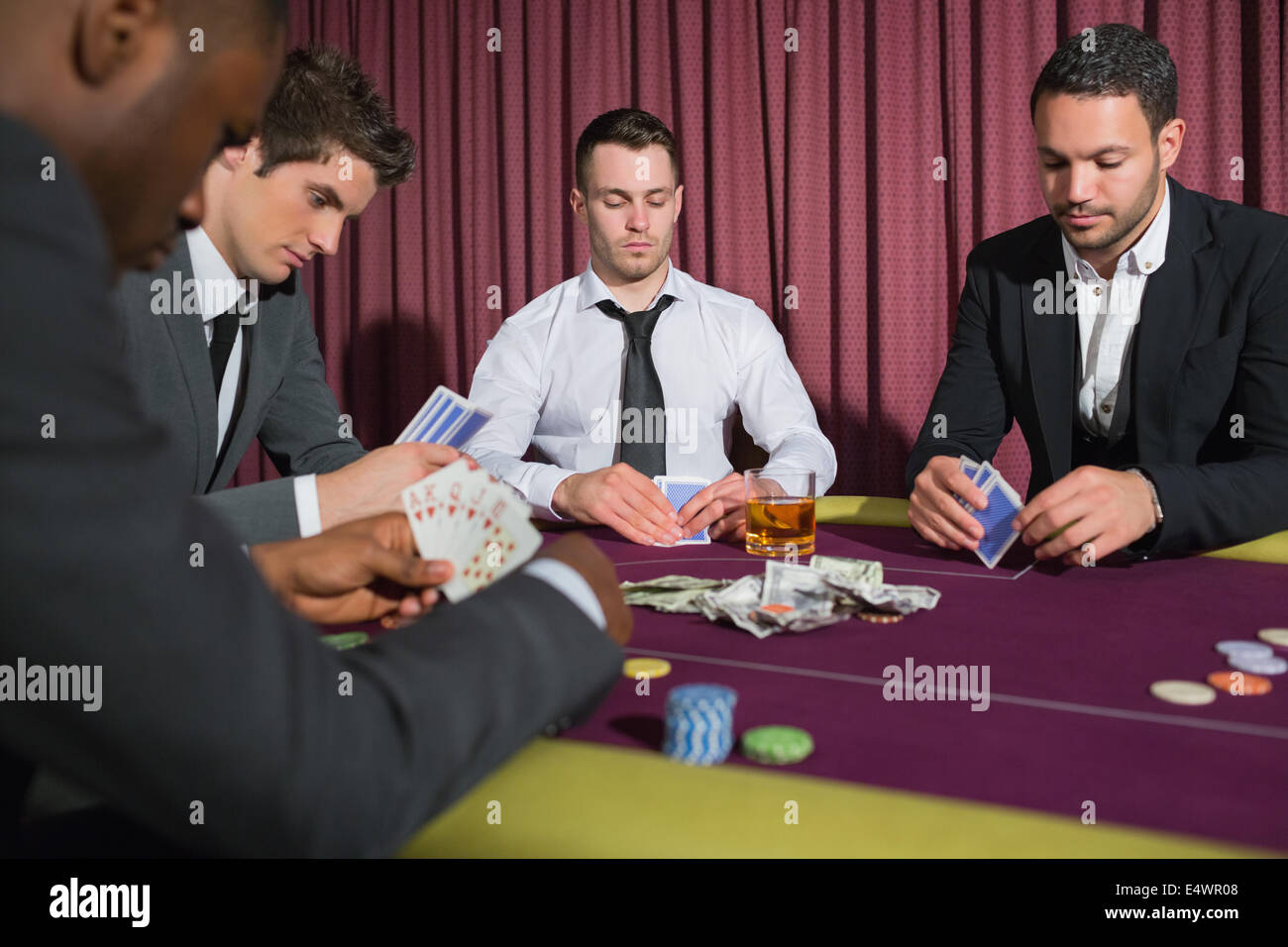Hookup Check: Your Ultimate Dating Resource
Explore insights, tips, and advice for modern relationships and hookups.
High Stakes Gambling: Where Luck Meets Loyalty
Explore the thrilling world of high stakes gambling where luck meets loyalty. Discover strategies and secrets to win big!
The Psychology Behind High-Stakes Gambling: Navigating Luck and Loyalty
The world of high-stakes gambling is not merely about luck; it's intricately tied to the psychology of decision-making. Gamblers often find themselves caught in a cycle of risk and reward, compelling them to make choices that may seem irrational to outsiders. This phenomenon can be explained through concepts like loss aversion and the gambler's fallacy, where individuals believe that past outcomes will influence future results. This cognitive bias can not only escalate their betting behavior but also deepen their emotional investment in games of chance. As players ride the highs of winning streaks and the lows of devastating losses, their psychological state can influence their loyalty to particular games or casinos, often leading to a repeat cycle of gambling despite potential financial repercussions.
Moreover, the relationship between loyalty and high-stakes gambling can be attributed to a sense of community and identity that forms around these activities. Many gamblers develop a strong emotional attachment not just to the games but also to the locales where they play. This phenomenon is driven by the social aspects of gambling, where interactions with other players and staff contribute to a feeling of belonging. Establishments often leverage this loyalty through rewards programs and personalized experiences, recognizing that the emotional pull is just as significant as the thrill of the game itself. Ultimately, understanding the psychology behind these behaviors is essential for both gamblers and operators in the industry, as navigating the fine line between luck and loyalty plays a crucial role in shaping the gambling experience.

Counter-Strike is a popular first-person shooter game that has captivated millions of players worldwide. In this tactical team-based game, players compete in various scenarios that often involve bomb defusal or hostage rescue. For those looking to gain an edge, using a duel promo code can enhance your gaming experience and provide new opportunities for customization and upgrades.
Top Strategies for Success in High-Stakes Gambling: Balancing Risk and Reward
High-stakes gambling can be an exhilarating yet perilous endeavor. To achieve success, it's vital to implement strategies that effortlessly balance risk and reward. One effective approach is to establish a strict budget that dictates how much you can afford to lose without it impacting your finances. Additionally, consider diversifying your gaming choices—each game offers unique odds and risk levels. For instance, games like blackjack may offer better odds compared to others like slot machines. By spreading your bets across different games, you can mitigate losses and maximize your chances of winning.
Moreover, understanding the psychological aspects of gambling is crucial for long-term success. Bankroll management is essential, but so is maintaining emotional control during gameplay. To help with this, many successful gamblers adhere to rules such as only betting when feeling composed and taking breaks to prevent fatigue from clouding judgment. Additionally, implementing a reward system can help reinforce positive behavior and decision-making, ensuring you always play with a clear and focused mindset. By combining these strategies, one can effectively navigate the thrills of high-stakes gambling and enhance their potential for reward.
How Loyalty Programs Influence High-Stakes Gamblers: Are They Worth It?
Loyalty programs are often a pivotal factor in the behavior of high-stakes gamblers. These programs typically offer various incentives such as cash back, free accommodations, and exclusive event access, which can significantly enhance a gambler's experience. High-stakes players frequently find themselves drawn to casinos that provide these lucrative perks, as they can lead to improved value for their gaming expenditures. Many gamblers question whether these programs truly deliver enough benefits to offset potential losses, igniting a debate about their overall worth.
Moreover, the psychological impact of loyalty programs cannot be underestimated. The sense of belonging and recognition that comes with being a part of such programs can create a stronger emotional connection to the casino, leading gamblers to return more often. This can result in increased spending, as players are often motivated by the desire to accumulate rewards, enhance their gaming experience, and possibly attain elite status within the loyalty hierarchy. Ultimately, for high-stakes gamblers, the worth of loyalty programs may lie not just in tangible rewards, but also in the intangible benefits of status and camaraderie.